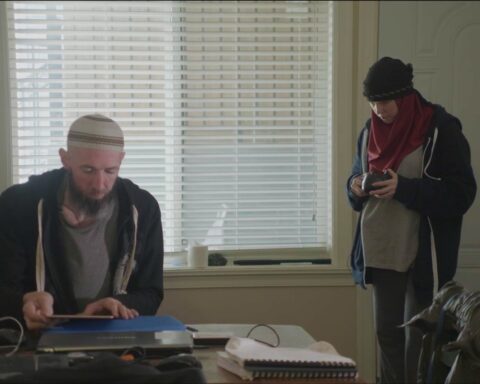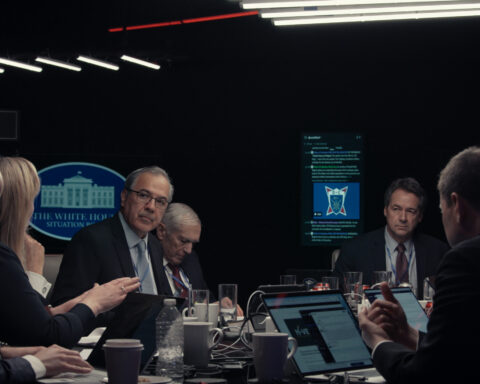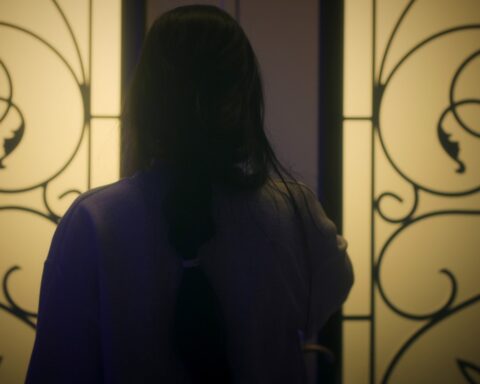Programme: TIFF Docs (World Premiere)
France, 90 min.
Directed by Daniel Leconte, Emmanuel Leconte
#jesuischarlie trended worldwide for days following this January’s terrorist attack on the Paris offices of Charlie Hebdo, the controversial French satirical magazine. That brutal incident is only one tragedy in a string of violent acts that rocked Paris that January as racially and religiously motivated hate crimes claimed the lives of 20 people in four separate crimes. Je Suis Charlie uses the attack on Charlie Hebdo as a springboard to examine France’s collective cultural awakening and uprising against violence in the name of religion. This timely and compelling doc chronicles the events in detail and builds a persuasive argument in favour of a free and democratic press that incites and inspires debate.
Directors Daniel and Emmanuel Leconte create a disorienting portrait of the attack through interviews with survivors and victims. The range and intensity of the accounts puts the viewer deep within the chaos of the 7 January shooting. Archival interviews with the deceased cartoonists Cabu, Charb (the primary target of the attack), and Honoré provide the context of Charlie Hebdo and show their style of humour that uses provocative renderings of religious figures to provoke readers into recognizing the faults of organized religion and religious fundamentalism alike. These cartoonists are intelligent and articulate, both with their words and with their pens, and Je Suis Charlie introduces them as comrades in arms who simply sought to make the world a more intelligent place through humour.
Cut to the present-day interviews with survivors of the shooting, and Je Suis Charlie builds a harrowing account of the very violence the magazine condemned. The testimony from Coco, the cartoonist whom the terrorists coerced to gain access to the offices, is especially effective as she recounts the unfathomable position of being forced to lead killers to her friends or to take a bullet herself and leave her daughter childless. The survivors relive the story with such unsettling and distressing details that the film re-creates the chilling headspace in which they experienced the traumatic attack.
The filmmakers punctuate the chronological account of the attacks on the Charlie Hebdo offices and elsewhere in Paris, including the murder of several police officers and an attack on a Jewish grocery store, with images of the masses rallying in support of the magazine. Je Suis Charlie gives its voice to those who speak with words, rather than with violence, as it amasses testimony from various writers and academics to support Charlie Hebdo’s editorial voice. The filmmakers take a sober no-frills approach to the subject, but Je Suis Charlie creates a collective record that says the pen is mightier than the sword as the bullets of the terrorists fail to inspire fear. Instead, they provoke a larger outcry that Je Suis Charlie captures like an army, growing stronger and bigger with each attack.
The best surprise of the film, however, comes through the singular testimony of one Muslim man who recounts his analysis of the cartoon that was the first piece of cover art after the shootings. The cartoon, which depicts the prophet Muhammad crying, has inspired cries of blasphemy for its rendering of the prophet, especially in a comparatively powerless light. However, this shrewd observer articulates that the cartoon actually offers an astute rendering of Muhammad’s parable that says the prophet will cry because his children failed him. Je Suis Charlie smartly empowers the satirical cartoons of the artists—living or dead—by revealing them to be more in tune with the philosophy of religion than the men who use violence in its name.
Je Suis Charlie generally covers terrain that news junkies/informed viewers will recognise from the coverage of the event and the ensuing think pieces it inspired, but it is an overall urgent and concise account of the events and their larger cultural implications. Within these glimpses of Paris coming back to life, the film adds the voice of the artwork itself. Still frames of Charlie Hebdo’s provocative satirical cartoons showcase the impressive and unique ways in which the deceased cartoonists inspired debate through satire. By its very act of giving these cartoons new life, the film immortalizes the artists whom the terrorists sought to silence.
TIFF 2015 Screenings:
Wednesday, September 16
The Bloor Hot Docs Cinema – 7:00 PM
Thursday, September 17
Scotiabank Theatre, 9:15 PM
Sunday, September 20
Scotiabank Theatre, 1:00 PM











